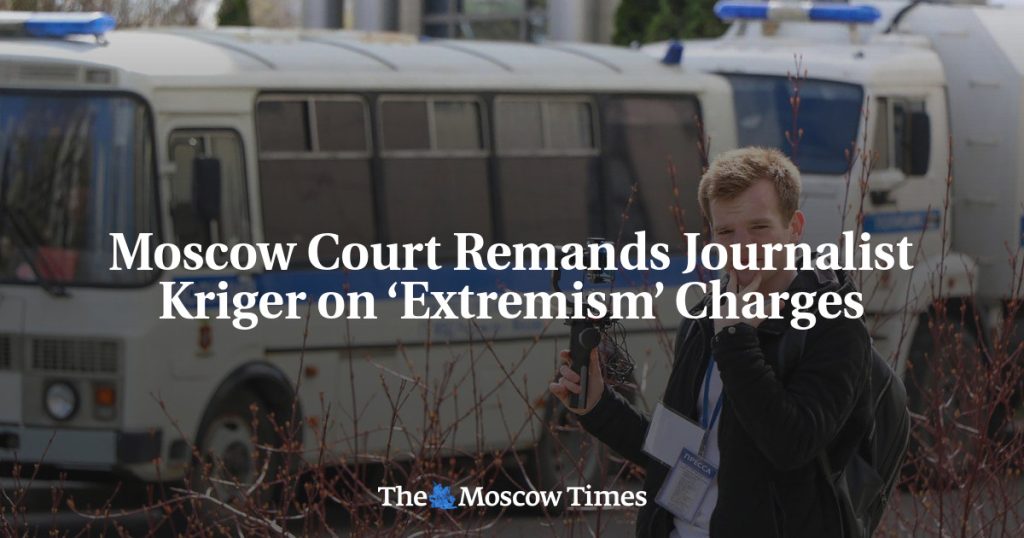A Moscow court has remanded journalist Artyom Kriger until mid-August on charges related to the “extremism” case against late Kremlin critic Alexei Navalny. Kriger, who works for the independent SOTAvision news outlet, was accused of “participation in an extremist community” after his Moscow apartment was searched by police and his personal electronic devices were confiscated. The Basmanny District Court ruled to place him in pre-trial detention until Aug. 18. SOTAvision denied the accusations, stating that Kriger was never an activist nor a member of any parties or movements, and had not cooperated with FBK to avoid endangering himself or his colleagues.
Russian authorities labeled Navalny’s activist network, including the disbanded Anti-Corruption Foundation (FBK), as “extremist” in 2021, exposing employees, volunteers, and supporters to criminal prosecution. If found guilty of participating in an “extremist” organization, Kriger faces up to six years in prison. Another SOTAvision journalist, Antonina Favorskaya, was arrested in March on similar charges related to FBK. Her arrest was extended until August 3, and if found guilty, she also faces up to six years in prison. Favorskaya, a photojournalist, had covered Navalny’s court hearings and filmed his last known video before his death in February.
Navalny’s spokeswoman Kira Yarmysh has denied that Favorskaya published anything for FBK. Additionally, last year, Kriger’s uncle Mikhail Krieger, a Russian opposition activist, was sentenced to seven years in prison for “justifying terrorism” and “inciting hatred,” which he and his supporters believe was punishment for his opposition to the war in Ukraine. The situation highlights the ongoing crackdown on dissent in Russia and the targeting of individuals associated with dissenting voices such as Navalny and his supporters. The arrests of Kriger and Favorskaya are part of a larger pattern of targeting journalists and activists critical of the Russian government.
The charges against Kriger and Favorskaya are seen as an attempt to silence independent media outlets and individuals who report on government corruption and human rights abuses. By labeling opposition groups as “extremist” and targeting their supporters, the Russian government seeks to eliminate dissent and maintain control over the narrative. The case also raises concerns about the erosion of press freedom in Russia and the dangers faced by journalists who seek to hold those in power accountable. The international community has condemned the arrests and called for the release of Kriger, Favorskaya, and other journalists and activists facing similar charges.
The imprisonment of journalists like Kriger and Favorskaya underscores the risks faced by those who work to uncover corruption and human rights violations in Russia. Despite the threats and intimidation, these individuals remain committed to their work and continue to pursue truth and accountability. The case also highlights the importance of supporting independent media outlets and journalists in Russia who face increasing pressure and harassment from the authorities. The international community must stand in solidarity with those fighting for freedom of speech and expression in Russia and call for an end to the crackdown on dissenting voices.
The situation surrounding Kriger and Favorskaya’s arrests adds to the growing concerns about the state of democracy and human rights in Russia. The government’s targeting of journalists and activists critical of its policies raises questions about the country’s commitment to fundamental freedoms and the rule of law. As the crackdown on dissent continues, it is essential for the international community to monitor the situation closely, hold the Russian government accountable for its actions, and support those who are fighting for democracy and human rights in the country. Only through collective action and advocacy can the voices of the oppressed be heard and justice be achieved for those who face persecution for speaking truth to power.


